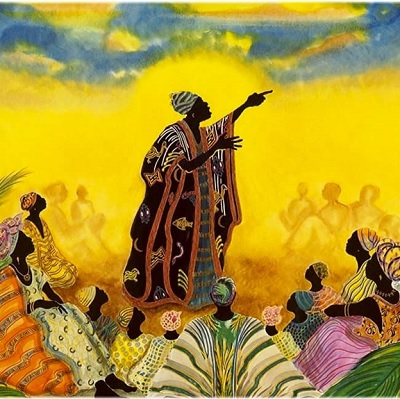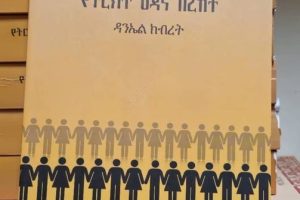
Africa has been raised and identified by the stories that amplify its degradations and backwardness in almost all subjects for centuries. The region has been described with words like hunger, conflict, displacement, dispute, poverty, war, pandemics, and what have you? Since the influencing actors are still in favor of stretching this story, the continent is forced to pass through this challenge for periods. But these days’ discussions and agendas are progressively being done to combat the trend. African people are increasingly bringing issues that are aimed at reshaping and changing the entrenched negative narrative regarding Africa.
Discussions, panels, conferences, and research are continuously under examination on the continent. The panel made in Zoom with three participants is found to be very relevant to this article. The basic issues raised in the discussion are presented below. Have a good read.
PRCA TV, based in Uganda Kampala, was organizing an online panel discussion on how to change the African narrative. The two panelists were from South Africa and Ethiopia. The moderator picks up the issue about the positive things that the continent had to celebrate and tell the world to be raised by the panelists. Leul Mekonnen the CEO of Spotlight Ethiopia was the first to address the question. He said, “Africa is the most action-packed and politically, culturally and economically the most complex continent in the globe.” He added that the region is extremely fast in adapting mobile technologies and digitalization. The cultural diversity and tourism industry are also unique and fascinating things that can be shared to the world.
Christina, the creative group head of Razor PR, from South Africa believed that Africa is an incredibly divers continent and that each country has its own innovative potential and can create startup technologies. Thus, this potential can be used as the best way to change the narratives that the world is using to identify the continent. She believed that African people are very creative that this is one thing to be told to the world.
Juliet Cele from the same office was asked about the things that Africa should consider for changing its narrative. She said that the first thing is thinking over the type of audience that Africa had. It is important to know the predisposed perceptions and needs of the audiences to change their perception. She believed that it was the media platform that affected Africa to keep its degrading identification in the minds of the universe. For her, the global media is dominated by the champions so that Africa had been forced to be represented in a way they needed.
As the panelists commonly rose the major media platforms hold their audiences using the approach that they had as nations. But in the case of Africa building one common media platform could be very challenging that the continent is composed of diverse nations, nationalities and languages. Thus, the most agreeable technique which was raised to be used as a best means to change the narratives of Africa is culture. Leul especially stresses that for African people the basic point to be underlined is that people should own their own stories. The factual stories should be narrated by African themselves. Thus, in Ethiopia he said, the Ethiopian Airline is functioning as the ‘diplomat’ in speaking out the identity of Ethiopians.
He said that the airline had a variety of techniques to introduce the who of the people. The magazine and the digital media platform carried the culture of the nations that mount up over 85 in the country when accessed while looking for the airline’s services. The dressing style, foods, and basic cultures are detailed in its platform. It also included the basic tourist attraction areas to be visited in the country, apart from the mentioned basic pillars. Ethiopian Airlines also practically announces the identity and culture of the people through the dressing styles and customer handling strategies of its hostess. The host’s greeting and each body gesture are technically modified as per the real indigenous cultures of Ethiopians that newcomers did find clues from the service.
Leul mentioned the film industry of Nigeria which is the best tool to correct the negative narration of Africa/. But since the industry is taken by Netflix the contents and gist are being abused by the owners. Thus it is impossible to bring the stories of Africa independently. Thus, based on this lesson Ethiopia is planning an independent platform for film industries. He said Ethiopia is steaming a platform that is going to be launched. Thus, Netflix is not the player in this market including Google Amazon prim. Thus, as he said this platform in association with Ethiopian filmmakers, is a great leap forward in terms of owning the country’s content. As he confirmed this is the best step to own and control his own story and to avoid any stereotypes on the nation’s identity.
Christina raises the idea of metaphor. She believed that these days the digital media platform can be used as an opportunity to revisit and transform metaphoric expressions in various forms. She believed that innovations, skills, and ideas that promote the positive image of Africa can be easily loaded on media platforms.
The last point the moderator of the panel raised was what should the next generation do to change the Africa narrative. Leul, on his turn, says, “We Africans need to be honest to ourselves more than anything.” He added that education is at the heart of this issue. He said we need to re-educate ourselves regarding the facts of the continent. “We need to know each other.” He believed that Africans should be sensitized on the principle of pan-Africanism. He believed that before talking about the continent, the people of the region should first know and understand the history, politics, culture, and economic backgrounds of countries in the continent. Leul affirmed that the potential of cultural exchange between African communities is so low that it exposes the region to various forms of stereotypes.
Thus, cultural exchange is very relevant for knowing and identifying the nations on the continent, which is crucial for narrating the story based on knowledge. Thus, before communicating about Africa on a given media platform, it is necessary to know the people through education and cultural exchange.
The panelists believed that there is no quick fix on the issues, but it is at hand to start the journey through education and cultural exchange in various ways.
The idea of creating one strong medium for Africa, as Leul pointed out, is very difficult since the countries of Africa are very diverse in their identities. Thus, the best and safest way to be followed for shifting the narrative is possible through the appropriate examination and implementation of African culture. It is believed to be the best steppingstone for alerting oneself about the people of the continent. Since culture is the softest and simplest aspect to enrich a given nation, it is a key to paving the way to knowing about the people.
Cultural exchange, by its very nature, is a peaceful approach that never demands the application of language. Through this sector, the identity and reality of the people can be learned. This knowledge is a base to narrate the real Africa in many forms. Juliet was also arguing that cultural exchange is the best tool to better narrate African reality. The people of the continent need to be bolder on their communal issues and need to connect more in a way that can transform the negative narratives.
Thus, conversation and connections are more impactful. Christina argued that more spaces for Africans need to be made to expose their potential. Thus, she believed in the expansion of investments in every aspect. African creativity and possibility need to be supported so that Africans can boost their efficacy that can alter the previous narration next to cultural exchange.
BY MEKDES TAYE (PhD)
THE ETHIOPIAN HERALD WEDNESDAY 13 NOVEMBER 2024



